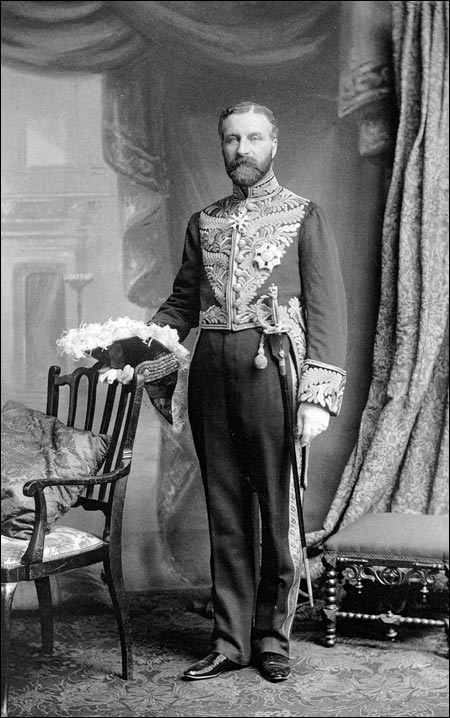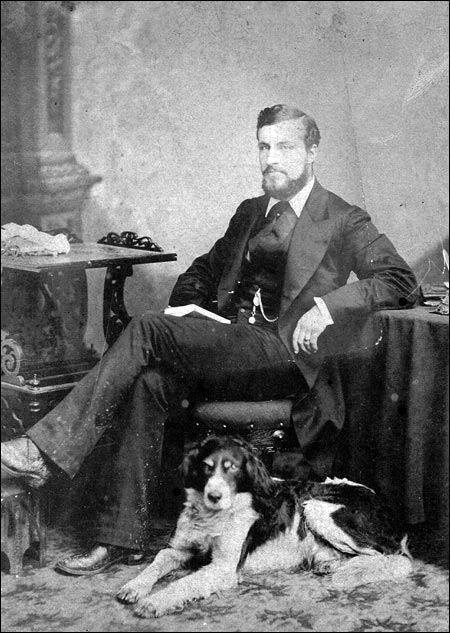Bond Moves Past Bribery Charges, Becomes Prime Minister
From the files of The Gazette October 21, 1999.
This is the second of a four part series on the life and times of Sir Robert Bond, one of the most influential politicians in Newfoundland history.
After four years of relative prosperity, Prime Minister William Whiteway called a general election for Nov. 6, 1893. He and his party were returned with an overwhelming majority winning 23 of 36 seats. Robert Bond was re-elected by the voters of Trinity.

The Conservative Party did not accept its defeat lightly. On Jan. 6, 1894, it filed petitions in the Supreme Court against 15 of the successful Liberal candidates charging them with bribery and corruption under the Corrupt Practices Act. One of those charged was Bond. His case came before the Supreme Court and on July 25 he was unseated as member for Trinity and barred from running for the election to the House of Assembly again. So, too, was Whiteway who had resigned as prime minister on April 11 when the governor refused to grant his request for a dissolution of the House. The governor, Sir Terence O'Brien, invited Augustus Goodridge, the Conservative leader in the House of Assembly, to form a new administration. He agreed even though the Conservatives had only 12 seats in the legislature to the Liberals' 22.
During the spring and summer of 1894 more of the Liberal members were found guilty under the Act, unseated and disqualified from running again. However, other Liberals kept being elected in their place in the by-elections which followed. Goodridge held on to power throughout the summer and fall by keeping the House of Assembly prorogued. It was Nov. 12 before the last by-election was held, and when it was over the Conservatives had made a net gain of one seat from the 1893 general election results.

It was another month before Goodridge resigned as Prime Minister. His decision was influenced more by the failure of Newfoundland's two commercial banks two days earlier than by the standings in the legislature. On Dec. 10, 1894, the Union and the Commercial banks did not open for business, a result of a demand by certain depositors that notes issued by the banks be cashed. As much of the banks' collateral was tied up in the truck system of commerce that operated in much of the Newfoundland fishery, there was no ready cash to meet these demands. The collateral was in the fish waiting to be sold to European markets. The run on the banks resulted in the bankruptcy of a number of mercantile firms, the loss of people's savings and the permanent closure of both banks.
It was Goodridge's inability of procure a loan in Great Britain to stave off the imminent bankruptcy of the colonial treasury, and with it the Newfoundland economy, that caused his resignation. On Dec. 13, Daniel Greene, the Liberal leader in the House of Assembly, was asked by the Governor to become Prime Minister. He was able to secure a short-term loan to stabilize the situation, but it was recognized by all concerned that his administration was only a caretaker until the necessary legislation could be passed to allow Whiteway, Bond and others who had been disqualified to stand once again for election to the House of Assembly. The Disabilities Removal Act was passed in early February 1895, Greene resigned a few days later and Whiteway was sworn in as Prime Minister for the third time.
Whiteway re-appointed Bond as Colonial Secretary and in September he was returned to the House of Assembly by acclamation as member for Twillingate. Jabez Thompson had resigned his seat to allow Bond to run there; Bond would represent Twillingate for the rest of his political career.
Bond spent the spring and summer of 1895 trying to find a way out of the precarious financial situation precipitated by the bank crash. He went to Ottawa to talk to Canadian officials about confederation between Newfoundland and Canada but that came to naught when Canada refused to assume Newfoundland's public debt. Bond was able to secure a loan from a Montreal brokerage house but he was forced to pledge his own property and credit as collateral. Several other attempts to negotiate loans in Canadian and American markets failed, but he was eventually able to acquire a long-term loan and a short-term debenture in London. In return Newfoundland had to agree to several austerity measures including a reduction in public spending and attempting to pay off the public debt.
The two years that followed were difficult times for the Whiteway administration. A poor fishery resulted in less exports and a subsequent decline in government revenues, which made the cuts in public spending demanded by the lending institutions all that more necessary and widespread. It was in the midst of this economic downswing that Whiteway took the Liberal Party into a general election. The Liberals lost to a rejuvenated Conservative Party under the leadership of James S. Winter. Whiteway was personally defeated and when the House of Assembly opened Bond was leader of the Liberal Party and Leader of the Opposition.
The legislative sessions of 1898 and 1899 were mainly concerned with what came to be known as the Reid Contract. For the sum of $1,000,000, Robert G. Reid acquired a 50-year monopoly on the operation of the Newfoundland railway (and ownership after 50 years), ownership of the St. John's dry dock and telegraph system, the right to operate the coastal boat service with a government subsidy, and 5,000,000 acres of crown land. Bond opposed the terms of the contract, but as Winter had a majority of members in the House, it passed the legislature. Public opposition to the contract became widespread but even a petition containing more than 22,000 names had no influence on the actions of the government.
The railway contract may have contributed to its unpopularity, but the Conservative Party managed to self-destruct on its own, without a general election. Prime Minister Winter had the personal support of about half the caucus, while the rest were loyal to the Alfred B. Morine, the Minister of Justice. Morine desperately wanted to be Prime Minister and had an agreement with Winter that would see Winter resign as Prime Minister by the end of 1899, be appointed Chief Justice upon the retirement of Sir Frederick Carter, and Morine would succeed as Prime Minister. Their deal unravelled before it could be implemented, however, and in February 1900 enough of Morine's supporters voted with the opposition in favour of a want of confidence motion in Winter's administration to have the motion succeed. In March the Governor invited Bond to become Prime Minister.
Archives and Special Collections Table of Contents




